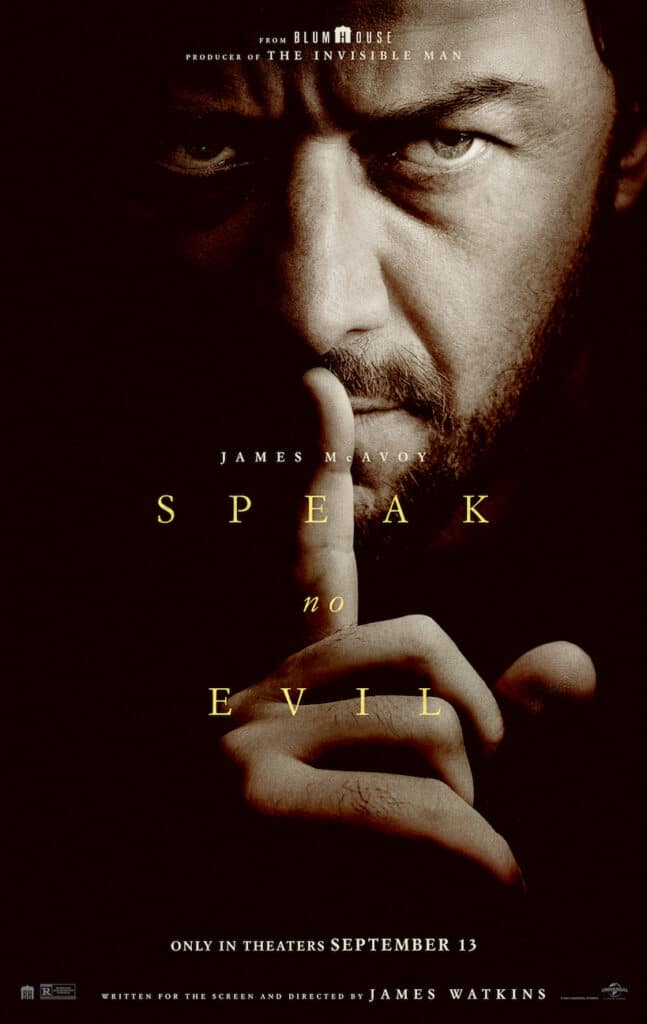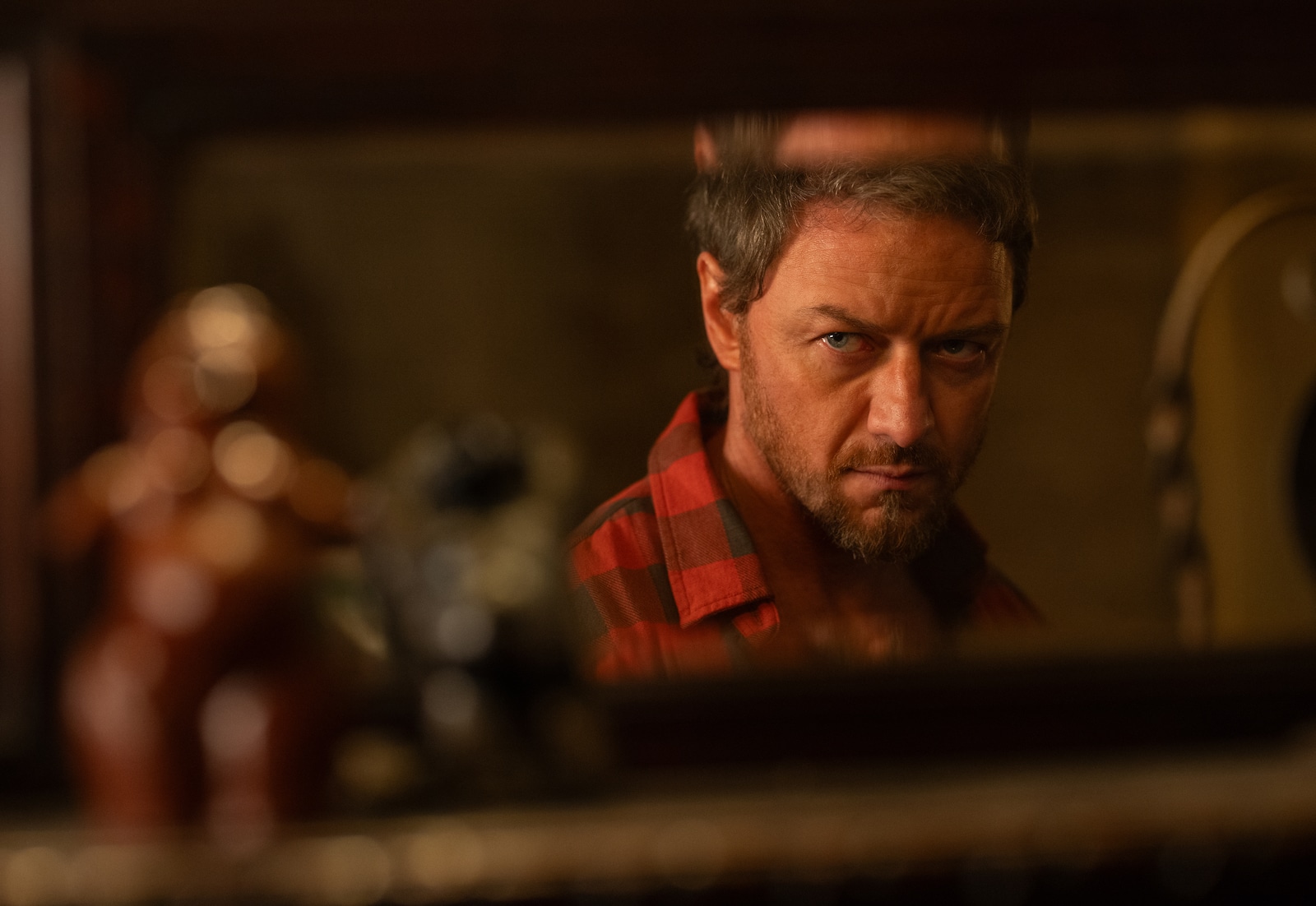Starring James McAvoy, Mackenzie Davis, and Scoot McNairy
Written and Directed by James Watkins
Universal/Blumhouse
SPEAK NO EVIL will captivate two distinct audiences: those who have watched Christian Tafdrup’s chilling Danish original and may take issue with the changes made in this English-language adaptation, and the millions of American viewers who are unfamiliar with Tafdrup’s film and will likely enjoy this new version as a skillfully crafted suspense thriller laced with dark humor. As someone who greatly appreciated the original and its exploration of unsettling themes, I found myself impressed by writer-director James Watkins’ film, which effectively puts its own spin on the source material and features an excellent cast.
At the forefront of the ensemble is James McAvoy as Paddy, who is vacationing in Italy with his wife Ciara (Aisling Franciosi from THE LAST VOYAGE OF THE DEMETER and STOPMOTION) and their young son Ant (Dan Hough). They cross paths with American couple Ben and Louise Dalton (Scoot McNairy and Mackenzie Davis) and their daughter Agnes (Alix West Lefler). The Daltons are escaping their troubled home life; Ben moved them from the U.S. to London for a job that ultimately fell through. While Paddy tends to be reserved, he is brash and unfiltered, humorously mocking a self-important Danish tourist at their resort—a fun nod to the original film, where the couples were Danish and Dutch. After a few chance encounters lead to drinks and dinner, Paddy invites the Daltons to visit their home in the remote West of England, unaware of the ominous turn their journey will take.

One of the intriguing aspects of Watkins’ adaptation is its reversal of typical perceptions about the British and Americans. Traditionally, the British are seen as reserved and overly polite, while Americans are often viewed as louder and more crass. Paddy, as he initially presents himself, is a hedonist who openly shares his opinions—someone you’d enjoy sharing a pint with at the pub. However, spending an extended weekend at his home presents a different scenario. Although Paddy and Ciara initially seem like gracious hosts when the Daltons arrive, they soon begin to commit subtle microaggressions that can initially be dismissed as accidental. For instance, Paddy insists that Louise, a vegetarian, be the first to sample a roast goose he’s prepared.
Watkins skillfully builds a growing tension that is both uneasy and occasionally humorous, revealing that Paddy and Ciara are not merely making social blunders but are intentionally testing their guests’ patience. Louise picks up on the red flags faster than Ben, especially concerning how Paddy and Ciara treat Agnes. Even after crossing a clear line, the Daltons are persuaded to remain. Like Tafdrup, Watkins examines themes of propriety and how society conditions us to tolerate certain behaviors. The suspense lies in anticipating when the situation will become intolerable. Once that moment arrives, how will the Daltons react? The resolution of this tension and the ensuing final act differ significantly from the original film, steering this version towards STRAW DOGS territory.
In this light, it can be argued that Watkins has crafted a more effective “remake” of DOGS than the official adaptation we received 13 years ago. The anxiety built over the first 80 minutes culminates in a satisfying and visceral climax, allowing McAvoy to fully embody Paddy’s sinister nature. He excels throughout SPEAK NO EVIL, bringing a rough charm and an engagingly uninhibited personality to the role, even as his darker side looms. Davis complements him well, effectively portraying Louise’s escalating frustration with Paddy and Ciara’s treatment of her family, her determination to protect them, and her irritation with Ben. McNairy delivers a nuanced performance as Ben, whose shortcomings lead him to briefly succumb to Paddy’s hypermasculine allure, while Franciosi consistently shines as a woman whose loyalty to Paddy may mask a hint of victimhood.
Additionally, young actors Lefler and Hough bring more agency and initiative to their roles compared to the previous film. In this version, Ant guides Agnes toward uncovering some of the disturbing truths about the household, and Lefler evokes sympathy for Agnes, who grapples with anxiety even before facing the frightening circumstances. This shift in focus is one of the successful adaptations Watkins has made to the original material while still honoring what made the original film impactful. SPEAK NO EVIL serves as an effective and valuable companion piece to its source, offering plenty of taut and shocking entertainment for those unfamiliar with it.

